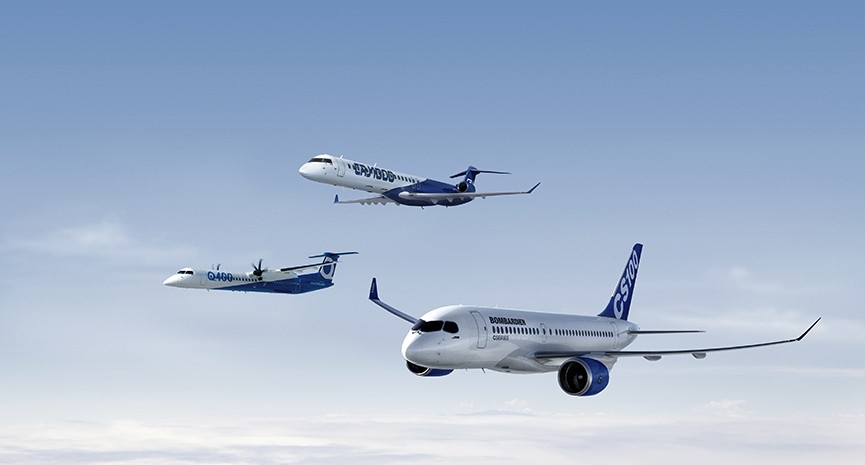African intra-regional connectivity to triple in the next 20 years: Bombardier
November 15, 2017: Africa is expected to take delivery of 550 aircraft in the 60 to 150 seats segment between 2017 and 2036 points out the Bombardier Commercial Aircraft’s new 20-year Market Forecast.

November 15, 2017: Africa is expected to take delivery of 550 aircraft in the 60 to 150 seats segment between 2017 and 2036 points out the Bombardier Commercial Aircraft’s new 20-year Market Forecast.
The forecast also predicts continuing growth in intra-regional flying in Africa dominated by large turboprops and small single-aisle jets.
The intra-regional traffic is expected to grow 4.6 percent annually over the next 20 years. The 60 to the 150-seat fleet will increase by 2.4 times in order to meet the growing traffic demand.
The majority of these aircraft will have dual-class cabins. Currently, 90 percent of intra-regional seats are dual class. Passengers travelling on intercontinental widebody jet demand seamless services when connecting flights with a regional jet or turboprop.
The Forecast notes that large turboprops have a significant share of capacity on short-haul routes, having increased from three aircraft in 1990 to more than 100 today.
“Bombardier has worked closely with African airlines for several decades assisting with fleet planning, route development, flight operations, and we are uniquely positioned to meet the requirements of African airlines in the coming years. We are proud of the CRJ Series, and Q400 aircraft continued success in Africa. Their outstanding economics and performance is well-recognised in the region, and we are confident that operators in the region will also benefit from the outstanding performance and capabilities of our C Series jetliners,” said Jean-Paul Boutibou, vice president, Sales, Middle East and Africa, Bombardier Commercial Aircraft.
Like other airlines around the world, African carriers will look to replace their retired fleets with modern aircraft with better fuel efficiency, softer environmental footprint, greater reliability, and improved passenger comfort and amenities.
Declining yields will drive African airlines to switch their focus from cost per seat to profitability per passenger by investing in right-sized aircraft based on market demands.
Africa is expected to take delivery of 550 of these aircraft between 2017 and 2036 for a four percent share of the world market for 12,550 aircraft valued at $820 billion. The deliveries to Africa are expected to comprise 300 sizeable regional aircraft (60-100 seats) and 250 small single-aisle aircraft (100-150 seats).


